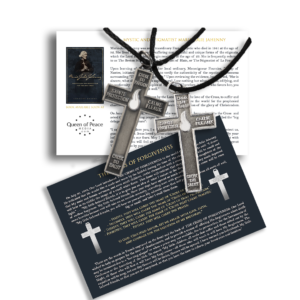
Love is patient, love is kind. It does not envy, it does not boast, it is not proud. It does not dishonor others, it is not self-seeking, it is not easily angered, it keeps no record of wrongs. Love does not delight in evil but rejoices with the truth. It always protects, always trusts, always hopes, always perseveres. Love never fails. (1 Corinthians 13:4-8)
He loves her. She loves him. That’s all you need, right? Wrong. These words can hit your love boat like a category 5 hurricane, but it’s better that you understand the peril you’re sailing toward while you still have time to change course.
In our hyper-sexualized culture, words and feelings of love between a man and a woman are too often the justification of sin against the sixth commandment. Too direct? Love demands nothing less because the stakes are just too high.
The young and old alike – Christians included – are diving headfirst into the tranquil waters of I Love You and getting swept downstream in the overpowering current of raging hormones and intellectual relativism. In the words of G. K. Chesterton, “A dead thing can go with the stream, but only a living thing can go against it.”
Something that feels so right can’t be wrong. Everyone else is doing it. We’re talking about getting married. We’re engaged, why wait? How do we know if the shoe will fit if we don’t try it on? If you really love me… It may be wrong for them, but it’s right for us because…
That’s going with the current of the cultural stream and that’s dangerous.
At the end of the day, though it feels like love, you call it love, and you believe it’s love, it is not love as God desires us to know love in all its glory according to His plan.
Consensual participation in a sinful act does not make licit that which is inherently illicit. Mutual consent cannot make moral, beautiful, fruitful, and holy that which is contrary to the moral law.
As it concerns the moral law, particularly the Sixth Commandment, mutual consent can literally make one an accomplice in another’s vices or grave sins. (CCC 2480).
It’s not solely the forbiddance of adultery. It’s about fidelity. It’s about dignity. It’s about purity. It’s about the holy integration of our sexuality with our entire being. It’s about protecting and preserving the virtue of chastity. All persons, regardless of their state in life, are called to chastity. “Chastity is a moral virtue. It is also a gift from God, a grace, a fruit of spiritual effort.” (CCC 2345)
Chastity includes an apprenticeship in self-mastery which is a training in human freedom. (CCC 2339).
The Catechism of the Catholic Church (CCC) unpacks the Sixth Commandment and the offenses (sins) against chastity which include but aren’t limited to lust, masturbation, pornography, prostitution, homosexual acts, and fornication (sexual intercourse between unmarried persons). These offenses constitute grave matter which means that the sin is serious and potentially mortal.
Mortal sin is committed when a person disobeys the moral law (Commandments) in (1) a grave matter, with (2) full knowledge and (3) deliberate consent. For a sin to be mortal, [these] three conditions must together be met. (CCC 1857)
Mortal sin is a radical possibility of human freedom, as is love itself. It results in the loss of charity and the privation of sanctifying grace, that is, of the state of grace. If it is not redeemed by repentance and God’s forgiveness, it causes exclusion from Christ’s kingdom and the eternal death of hell, for our freedom has the power to make choices for ever, with no turning back. However, although we can judge that an act is in itself a grave offense, we must entrust judgment of persons to the justice and mercy of God. (CCC 1861)
As a baptized Catholic, a person in mortal sin can seek and obtain forgiveness in the Sacrament of Reconciliation.
…and the blood of Jesus his Son cleanses us from all sin. If we say we have no sin, we deceive ourselves, and the truth is not in us. If we confess our sins, he is faithful and just, and will forgive us our sins and cleanse us from all unrighteousness. (1 Jn 1:7-9)
Genuine sorrow for sin is a necessary condition for the forgiveness of sin. We cannot avoid sin without intentionally avoiding its near occasion (putting yourself in situations to be overcome with temptation). Love requires that we examine ourself and ask if we consciously presume God’s mercy while habitually committing the same sin. This is the sin of presumption and it’s also a matter of confession.
 God has the perfect plan for you to grow in holiness together, without compromise, without conformity, without corruption, and without sin.
God has the perfect plan for you to grow in holiness together, without compromise, without conformity, without corruption, and without sin.
Do not conform yourselves to this age but be transformed by the renewal of your mind, that you may discern what is the will of God, what is good and pleasing and perfect. (Romans 12:2)
Love, according to God’s plan, must be patient, pure, and selfless. Love must not dishonor the dignity of any person created in the image and likeness of God. Love must not be self-seeking in order to gratify lustful desires.
Love must always have as its delight the holiness and sanctification of another.
Christ-like love enables its lovers to be stepping stones to eternal life and not stumbling blocks to eternal damnation. Love is always ready to defend against anything and anyone that threatens to defile it. Love must always strive to be deserving of its beloved’s trust.
Love must always have at its center, Christ crucified, as a fountain of grace, a beacon of hope, and model of perseverance until the very end.
Where one alone may be overcome, two together can resist. A three-ply cord is not easily broken. (Ecclesiastes 4:12)
This Love does not fail. This Love liberates. This is Divine Love and this is God’s plan for us to know and live in His Love Divine.
St. Raphael, Angel of chaste courtship, pray for us.
Theology of the Body in One Hour
© 2023 Brian Kravec
Brian is a cradle Catholic, husband and father. He’s a writer, speaker, and the Co-Founder and Executive Director of Possibility Productions, a 501(c)(3) faith event evangelization apostolate in service of the Body of Christ.







